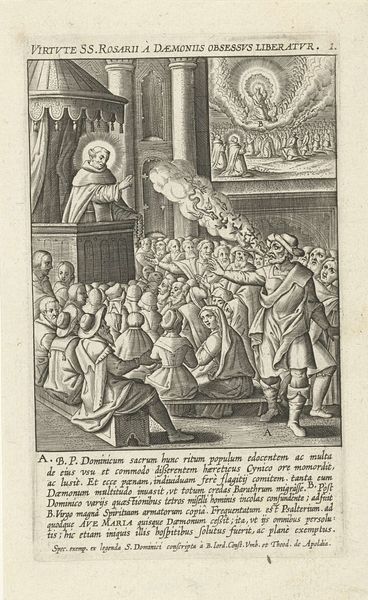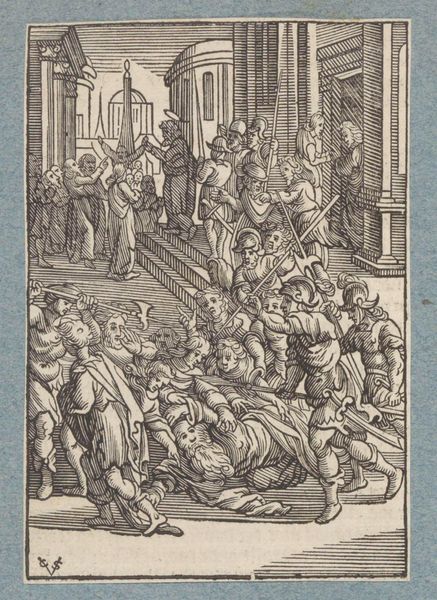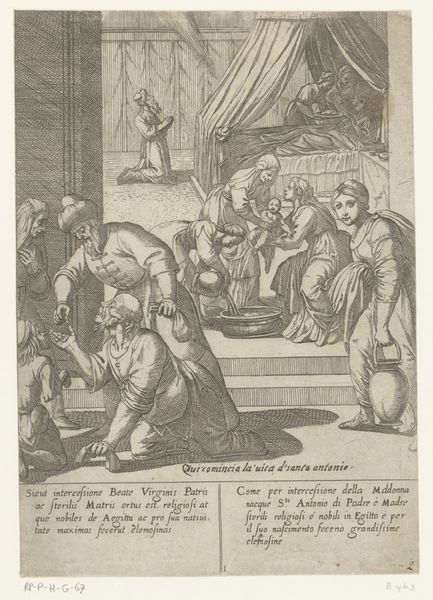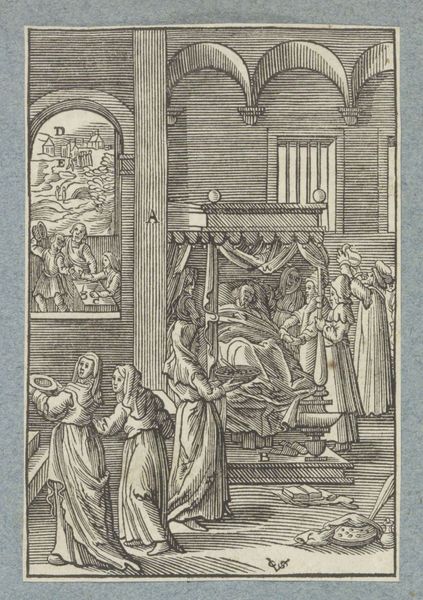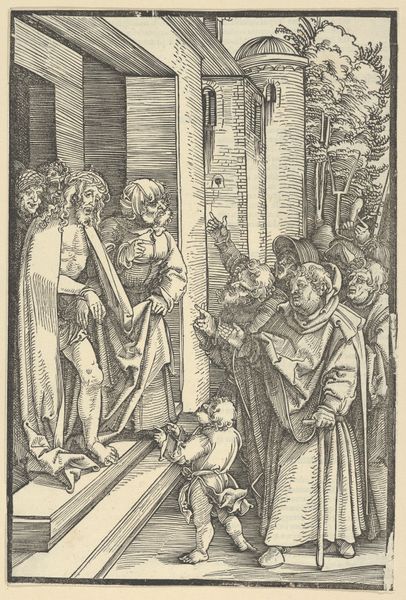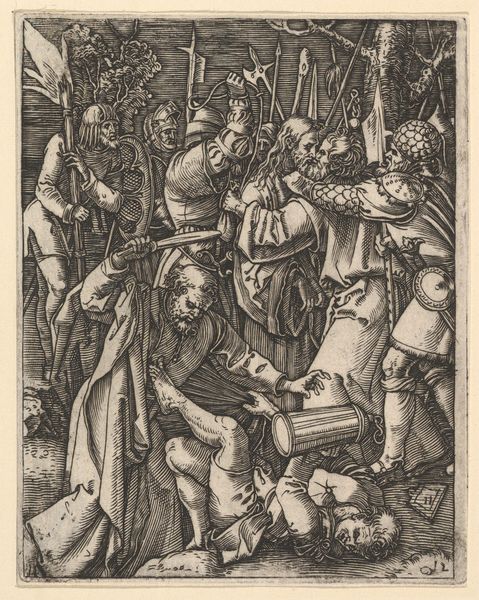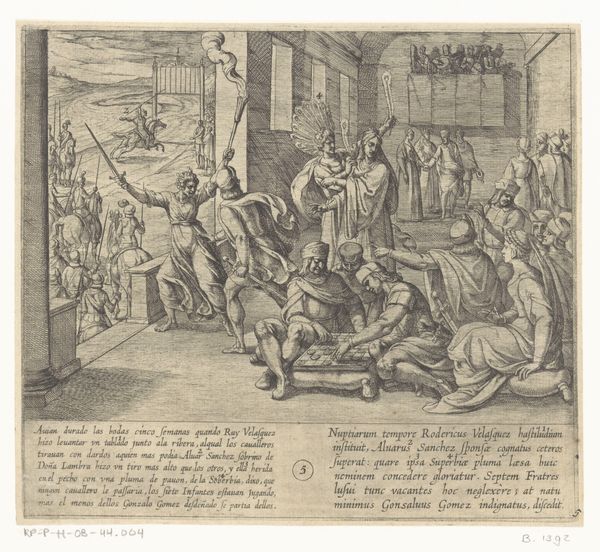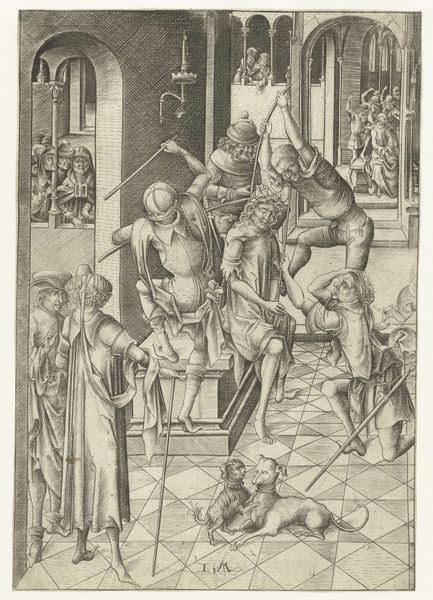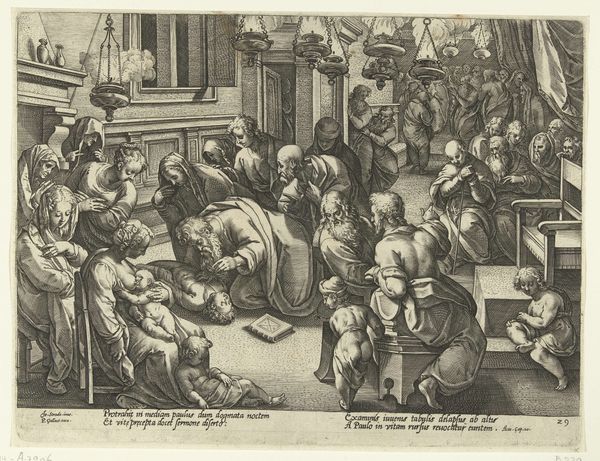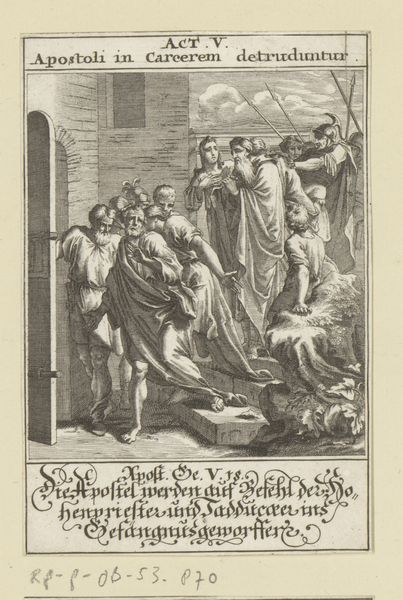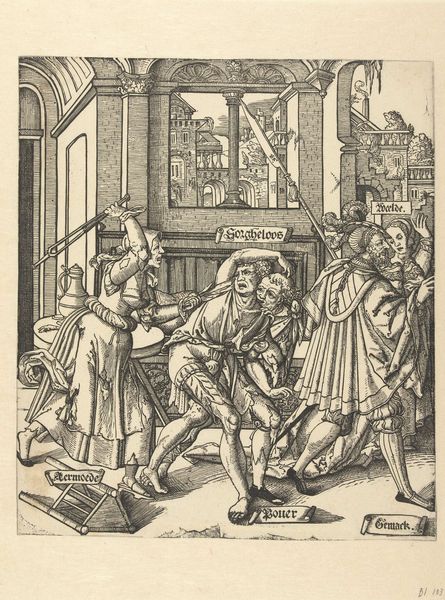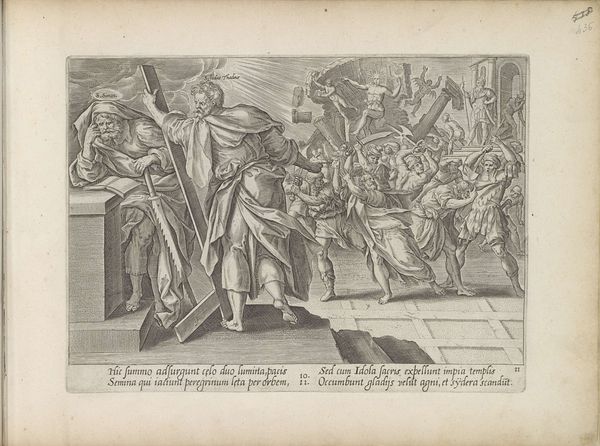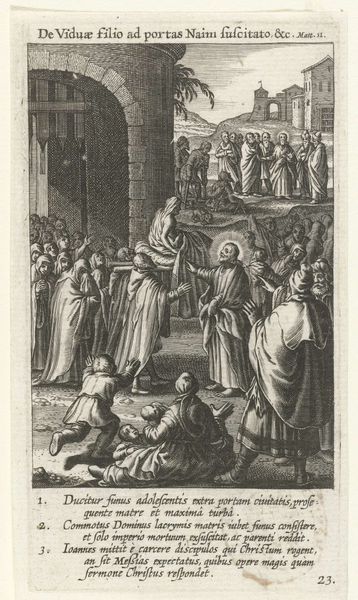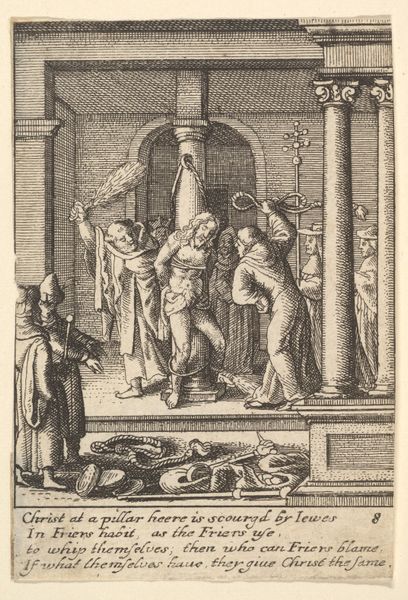
print, engraving
#
narrative-art
#
baroque
# print
#
figuration
#
history-painting
#
engraving
Dimensions: height 150 mm, width 89 mm
Copyright: Rijks Museum: Open Domain
Editor: We are looking at "Door de rozenkrans worden duivels ontmaskerd", an engraving made around 1610 by Theodoor Galle. It's at the Rijksmuseum. The detail in this small print is incredible. I’m struck by the composition; it feels staged, like a play frozen in time. What elements stand out to you, and how do they guide our understanding? Curator: The composition is indeed deliberate, reflective of Baroque aesthetics where visual impact is paramount. Observe the strong diagonal lines directing the eye across the picture plane, and the layering of figures creating depth and visual drama. The distribution of light and shadow contributes significantly to this dramatic effect. Editor: Yes, the light really focuses the attention. Can you elaborate on that? Curator: Absolutely. Galle has manipulated light and shadow—chiaroscuro, to use the formal term—to emphasize the central figures. This highlights the narrative elements: the ‘obstinate sinner’ being confronted and, above, the spiritual consequences implied. The stark contrast lends an air of drama and moral weight to the piece. Notice too how texture is rendered by the different applications of line, from fine and dense in shadow, to sparse in highlights. Editor: That makes sense. Looking closely at those finer details definitely adds a layer. I guess I was focusing on the overall scene. Curator: The strength of Formalism lies in this ability to extract layers of meaning through sustained visual engagement, rather than immediately reaching for symbolic or historical contextualizations. Do you find that your appreciation of the engraving has shifted with this focused examination? Editor: I do. Now I am thinking of all those different points of view—it has enriched the work so much. Thanks for opening my eyes.
Comments
No comments
Be the first to comment and join the conversation on the ultimate creative platform.
